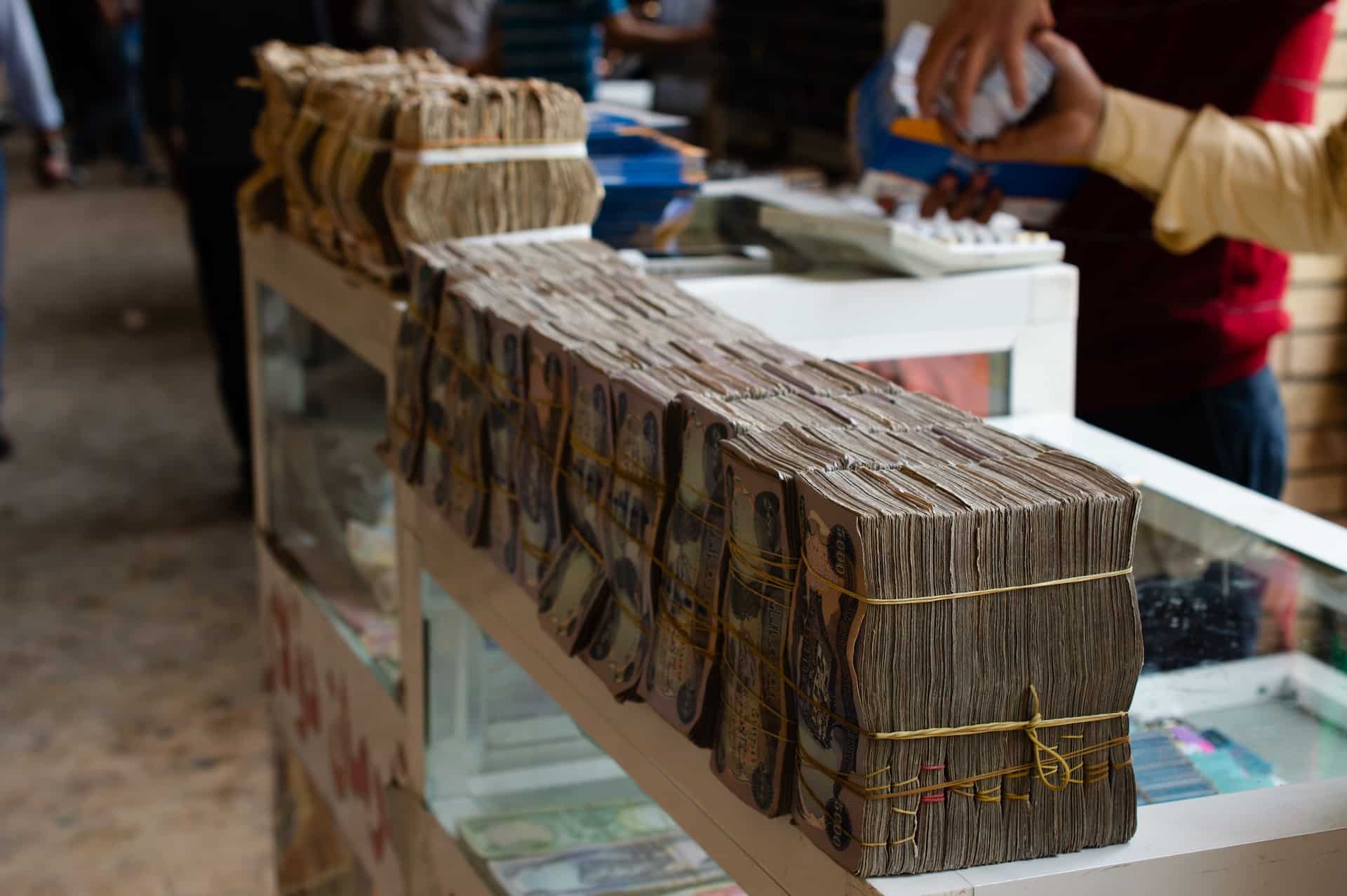The Iraqi dinar has plummeted against the US dollar this week after the United States imposed sanctions on 14 Iraqi private banks, barring them from conducting transactions in dollars.
The sanctions come amidst Iraq’s ongoing struggle to stabilise its currency as it relies heavily on imports priced in dollars. The dinar dipped from 1,470 to 1,580 against the greenback in the past two days, sparking chaos in markets and angry protests outside Iraq’s central bank headquarters in Baghdad.
Representatives of the sanctioned banks denied wrongdoing and appealed to the Iraqi government to intervene on their behalf. “We call on the brothers at the Iraqi government to use all available means to undo the damage which occurred to us specifically, and to the Iraqi banking sector in general,” banker Haider Al Shamma said in a statement on behalf of the 14 banks.
He warned the sanctions could deter foreign investment and have far-reaching impacts beyond the banks themselves. “Forcing sanctions on a third of the Iraqi private banks from conducting dollar transactions will have negative consequences not only on the value of the Iraqi dinar against the US dollar, but it will have a very big impact on foreign investments,” he said.
The US Treasury’s Office of Foreign Assets Control (OFAC) determined the banks were complicit in facilitating suspect dollar transfers to Iran last year, hence the punitive measures. But Mr Al Shamma insisted the banks were apolitical entities focused on finance, saying, “Our banks have nothing to do with political tensions but are independent financial institutions.”
Iraq’s central bank said affected banks could still conduct transactions using Iraqi dinars or other non-dollar currencies. But dollars remain crucial for Iraq’s largely import-driven economy.
The volatility is the latest chapter in Iraq’s ongoing currency crisis that has led to price hikes on consumer goods and sparked street protests demanding solutions.
Iraq has struggled to stabilise the dinar since late 2021 when the US Federal Reserve tightened procedures for international dollar transfers, rejecting or delaying many requests from Iraq. The Fed remains concerned dollars are being funnelled through Iraq’s currency auction to Iran, Syria and Lebanon – countries facing US sanctions.
The US has blacklisted Iraqi banks it accused of money laundering or suspicious transactions. But the Iraqi government blames Washington for the currency chaos and the resulting economic impacts.
Despite a series of measures aimed at containing public anger, the central bank has failed to control the exchange rate declines.
The latest sanctions on the 14 private banks represent another hurdle, likely feeding further dinar instability. With more volatility ahead, ordinary Iraqis continue bearing the brunt of external political tensions beyond their control.
Image Credit: Levi Meir Clancy / Unsplash



















